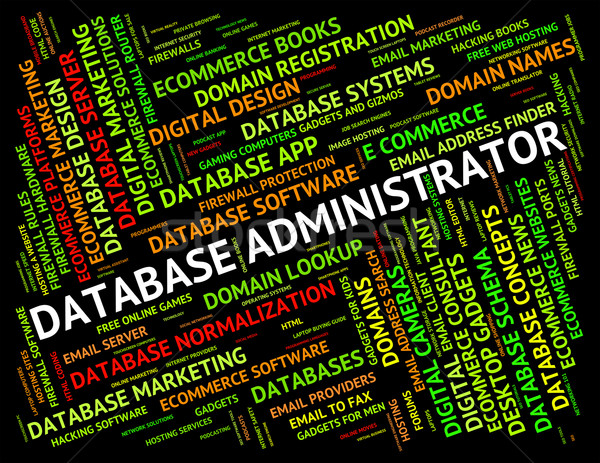For Students
STEM Jobs - 8. Database Administrator
Admin Aug 23, 2022 04:05 PM

TAGS
With corporations increasingly attempting to collect and organise data, and more and more records getting digital (particularly in the medical industry), demand for those who can design and maintain databases has been gradually increasing. That's one of the reasons why pursuing a career in database management may be so tempting. By 2022, this field is predicted to add 40,000 new employment, representing a 35 percent increase. This is especially good news for recent graduates and students pursuing a degree in this sector, since there will be plenty of opportunities to find work and get their foot in the door.
Database administrators (DBA’s), also get to operate in a pleasant setting, often in collaboration with other professionals to improve databases, secure data, and avoid data loss, making them an important element of any firm today and in the future. Jobs in this field can pay well and come with a variety of benefits. These considerations, combined with the field's certain growth in the next years as new technology and market needs alter how organisations run, make it a sensible and in-demand choice for STEM students today.
Education and Training
A bachelor's degree in management information systems (MIS) or another computer-focused area, such as computer science or computer programming, is required to work as a database administrator. An MBA may be beneficial to those who work with major corporations, since it provides a greater understanding of the everyday operations of the firms with whom DBAs may be involved. In fact, it may be preferred or required by some businesses. While not necessarily required, a graduate degree in database administration or management information systems (MIS) might be beneficial in some instances.
According to Professor Delvin A. Grant of DePaul University's School of Accountancy and Management Information Systems (USA), students who want to work as database administrators should focus on learning SQL, a programming language used to develop and maintain relational database management systems. He also emphasises the importance of students being able to build and develop databases, as well as having a solid understanding of entity connection diagrams and normalisation. Finance, accounting, and marketing are all subjects that complement the knowledge students will acquire in MIS classes, thus he recommends them to students who want to double major or add a minor to their MIS study.

Skills to Develop
Those working as database administrators, whether in school or on the job, will need a diverse set of skills to be able to function in a highly technical and demanding environment.
Detail oriented: Databases are complicated systems in which even minor faults can cause huge issues. DBAs will be able to keep things operating well at their workplace if they can detect, prevent, and fix these details.
Analytical ability: DBAs are responsible for interpreting complicated information from a variety of sources; therefore good analytical abilities will guarantee that database systems can be regularly maintained.
Logical thinking: DBAs must be highly logical thinkers in order to manage the vast amounts of data in front of them and ensure that it is arranged in a way that makes sense to those who will utilize it.
Problem-solving: A large part of most DBAs' jobs is to fix database problems as they emerge. These problems might arise at inconvenient times or in perplexing ways, and DBAs must be able to think quickly and solve problems to get things back on track.
Communication: Because it's rare for a DBA to work alone in an office, excellent communication skills are essential for DBAs to collaborate well with their coworkers, bosses, and clients.
Career Advice from the Experts
Students should seek out extra certificates from large companies when looking for work. Microsoft, Oracle, and IBM all have their own certification programmes, but students should be aware that obtaining these credentials may be a time-consuming and frequently expensive process, since many of them require many tests and heavy fees. Certifications can make it easier to get jobs and appear more appealing to companies, so the effort and expense may be worthwhile.
An MBA or other business expertise, as previously indicated, might seem excellent on a CV, especially to large-company employers looking for personnel who understand business procedures and the information technology needs they impose. Those who may not wish to complete an MBA degree in its entirety may wish to take business courses or seek out business-related certificates.
Search
Latest Blogs

Exploring Opportunities in Emerging Engineering field
Admin
Dec 14, 2024 05:18 PM

Navigating College Majors
Admin
Sep 25, 2024 04:04 PM

Tools for Measuring Strengths For Career
Admin
Sep 25, 2024 03:27 PM
Interested in getting latest updates?
SUBSCRIBE


















